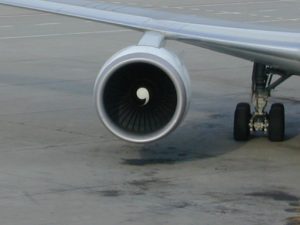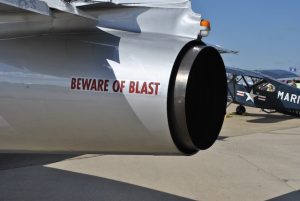Advanced Pilot Training Offered By Flight Schools
 In the world of aviation, the journey to becoming a proficient and successful pilot extends far beyond the initial stages of earning a pilot’s license. The aviation industry is one of constant evolution, marked by technological advancements, regulatory changes, and ever-increasing safety standards. As such, pilots must continually refine their skills and expand their knowledge to remain competitive and effective in their roles. This is where advanced pilot training comes into play, offering specialized courses designed to enhance a pilot’s capabilities, prepare them for specific career paths, and ensure they can meet the rigorous demands of modern aviation.
In the world of aviation, the journey to becoming a proficient and successful pilot extends far beyond the initial stages of earning a pilot’s license. The aviation industry is one of constant evolution, marked by technological advancements, regulatory changes, and ever-increasing safety standards. As such, pilots must continually refine their skills and expand their knowledge to remain competitive and effective in their roles. This is where advanced pilot training comes into play, offering specialized courses designed to enhance a pilot’s capabilities, prepare them for specific career paths, and ensure they can meet the rigorous demands of modern aviation.
Flight schools around the world have recognized the importance of advanced training and offer a variety of courses aimed at helping pilots achieve their professional goals. Whether a pilot is transitioning to more complex aircraft, seeking to master multi-crew operations, or aiming to meet the stringent requirements of an airline, advanced pilot training provides the essential tools and knowledge necessary for success.
Importance of advanced pilot training offered by flight schools
Advanced pilot training is essential for several reasons. First and foremost, it ensures that pilots are equipped to handle the complexities of modern aircraft and aviation operations. As technology continues to evolve, aircraft systems become more sophisticated, requiring pilots to possess a deep understanding of new avionics, flight management systems, and automated controls. Advanced training courses provide pilots with the opportunity to familiarise themselves with these systems in a controlled environment, reducing the risk of errors and enhancing safety.
In addition to technological advancements, the aviation industry is subject to strict regulatory oversight. Regulatory bodies such as the Federal Aviation Administration (FAA) in the United States and the European Union Aviation Safety Agency (EASA) in Europe set high standards for pilot training and certification. Advanced training courses offered by flight schools are often designed to meet or exceed these regulatory requirements, ensuring that pilots are fully compliant with industry standards and are prepared for certification or type rating exams.
Moreover, advanced pilot training is critical for career progression. For pilots aspiring to work for major airlines or in specialized roles such as corporate aviation or cargo operations, advanced training is often a prerequisite. Airlines and other employers seek pilots who not only meet the basic qualifications but also demonstrate a commitment to continuous learning and professional development. By completing advanced training courses, pilots can distinguish themselves in a competitive job market and position themselves for higher-paying and more prestigious positions.
Types of advanced pilot training courses
Advanced pilot training encompasses a wide range of specialized courses, each designed to address specific areas of expertise or operational requirements. Some of the most common types of advanced pilot training courses include:
1) Multi-Crew Cooperation (MCC) training
Multi-Crew Cooperation (MCC) training is a critical course for pilots transitioning from single-pilot operations to a multi-crew environment, such as that found in commercial airlines. In a multi-crew cockpit, effective communication, teamwork, and coordination are essential to ensuring the safe and efficient operation of the aircraft.
MCC training focuses on developing these skills by teaching pilots how to work together as part of a team, share tasks effectively, and make collective decisions under pressure. The course offered by flight schools typically covers areas such as Crew Resource Management (CRM), standard operating procedures (SOPs), workload management, and decision-making processes. By the end of the course, pilots are expected to be proficient in operating as part of a multi-crew team, with a strong emphasis on safety and communication.
2) Airline Transport Pilot License (ATPL) theory
The Airline Transport Pilot License (ATPL) is the highest level of pilot certification and is required for pilots who wish to serve as captains of multi-engine aircraft in commercial airline operations. Achieving an ATPL involves passing a series of rigorous exams covering a wide range of subjects, including advanced aerodynamics, navigation, meteorology, flight planning, and aviation law.
ATPL theory courses are designed to prepare pilots for these exams by providing in-depth instruction on the topics covered. These courses are often delivered in a classroom setting, with experienced instructors guiding pilots through the complex material. In addition to theoretical knowledge, ATPL courses also emphasise practical application, ensuring that pilots can apply their knowledge in real-world scenarios.
3) Type rating courses
A type rating is a certification that allows a pilot to operate a specific type of aircraft. Unlike a general pilot license, which covers a broad range of aircraft, a type rating is specific to a particular model or series of aircraft, such as the Boeing 737 or Airbus A320. Type rating courses are an essential component of advanced pilot training, particularly for those seeking to work for commercial airlines.
Type rating courses typically include both ground school instruction and simulator training. Ground school covers the technical aspects of the aircraft, including its systems, performance characteristics, and operational procedures. Simulator training allows pilots to practice flying the aircraft in a realistic environment, with a focus on handling normal, abnormal, and emergency situations.
Obtaining a type rating is a significant milestone in a pilot’s career, as it qualifies them to operate a specific aircraft type in commercial operations. Many airlines require pilots to obtain a type rating before they can be considered for employment, making this course a crucial step in career progression.
4) Jet Orientation Course (JOC)
The Jet Orientation Course (JOC) is designed to prepare pilots for the transition from propeller-driven aircraft to jet-powered aircraft. Jet aircraft have different performance characteristics and handling qualities compared to smaller aircraft, and the JOC provides pilots with the necessary training to operate these aircraft safely and effectively.
The JOC typically includes simulator training that focuses on jet-specific operations, such as high-speed flight, high-altitude operations, and thrust management. Pilots also learn how to handle the unique challenges of jet aircraft, such as managing inertia, controlling descent rates, and operating in busy airspace. The JOC is often a prerequisite for type rating courses and is particularly important for pilots who are new to flying jets.
5) Upset Prevention and Recovery Training (UPRT)
Upset Prevention and Recovery Training (UPRT) is a specialized course that teaches pilots how to recognize and recover from aircraft upsets, which are abnormal flight conditions that can lead to a loss of control. UPRT is designed to address one of the leading causes of aviation accidents—loss of control in flight (LOC-I).
UPRT courses typically include both theoretical instruction and practical flight training. Pilots learn about the aerodynamics of upsets, how to recognize the early signs of an impending upset, and the correct procedures for recovering the aircraft to a safe flight condition. UPRT is often conducted in both simulators and actual aircraft, providing pilots with hands-on experience in managing these critical situations.
6) Instrument Rating (IR) courses
An Instrument Rating (IR) is an essential certification for pilots who wish to fly in adverse weather conditions or in airspace where visual navigation is not possible. The IR allows pilots to operate under Instrument Flight Rules (IFR), which are critical for flying in clouds, low visibility, or at night.
Instrument rating courses provide pilots with the knowledge and skills needed to fly using only the aircraft’s instruments for navigation and control. The course typically includes both ground school instruction and flight training, with a focus on procedures for instrument approaches, holding patterns, and en-route navigation. The IR is a key qualification for pilots aiming to work in commercial aviation, as it enables them to fly in a wider range of weather conditions and airspace environments.
7) Crew Resource Management (CRM) training
Crew Resource Management (CRM) training is a fundamental course that focuses on the human factors involved in aviation safety. CRM emphasizes the importance of communication, teamwork, decision-making, and situational awareness in the cockpit. While CRM concepts are introduced during basic pilot training, advanced CRM courses delve deeper into these topics and are often tailored to specific operational environments, such as airlines or corporate aviation.
Advanced CRM training is designed to improve the overall effectiveness of the flight crew by enhancing their ability to work together and manage complex situations. The course covers areas such as conflict resolution, stress management, and the use of checklists and standard operating procedures (SOPs) to maintain safety and efficiency.
8) Night rating courses
Night flying presents unique challenges, including reduced visibility, altered depth perception, and the increased reliance on instruments. A Night Rating course is an advanced training program that prepares pilots to operate safely during nighttime conditions. This course typically involves both ground school instruction and practical flight training, where pilots learn to navigate, take off, and land in low-light environments.
Night rating courses emphasise the importance of proper planning, including understanding the effects of darkness on navigation and flight operations. Pilots also practice techniques for managing night-specific challenges, such as recognising and responding to visual illusions and maintaining spatial orientation.
Role of flight schools in advanced pilot training
Flight schools play a pivotal role in providing advanced pilot training, offering a structured and supportive environment where pilots can develop the skills needed for their specific career goals. These schools often have access to state-of-the-art facilities, including advanced flight simulators, modern training aircraft, and experienced instructors who bring real-world knowledge to the classroom.
In addition to providing high-quality training, flight schools also offer career support services to help pilots navigate the job market and secure employment. This support may include job placement assistance, networking opportunities, and guidance on meeting the certification and regulatory requirements for various roles within the aviation industry.
One of the key advantages of attending a reputable flight school for advanced training is the opportunity to train alongside other professionals who share similar goals. This collaborative environment fosters the exchange of knowledge and experiences, helping pilots to broaden their understanding of the industry and develop a network of contacts that can be valuable throughout their careers.
Choosing the right flight school for advanced training
Selecting the right flight school for advanced pilot training is a critical decision that can have a lasting impact on a pilot’s career. When evaluating flight schools, pilots should consider several factors:
- Accreditation and certification: Ensure that the flight school is accredited by relevant aviation authorities, such as the FAA or EASA. Accreditation ensures that the school meets industry standards and that its training programs are recognized by employers and regulatory bodies.
- Facilities and equipment: Advanced training often requires access to specialized equipment, such as full-motion flight simulators and modern training aircraft. Pilots should choose a school that offers state-of-the-art facilities and equipment that align with their training needs.
- Instructor expertise: The quality of instruction is paramount in advanced pilot training. Pilots should seek out schools with experienced instructors who have a strong background in the specific areas of training they wish to pursue. Instructors with real-world experience in commercial aviation, corporate aviation, or other specialized fields can provide valuable insights and practical knowledge.
- Course offerings: Flight schools vary in the range of advanced training courses they offer. Pilots should select a school that provides the specific courses needed to achieve their career goals, whether that involves obtaining a type rating, completing MCC training, or earning an ATPL.
- Career support: A flight school’s commitment to student success should extend beyond the training program. Pilots should look for schools that offer comprehensive career support services, including job placement assistance, resume building, and interview preparation.
- Reputation and alumni success: The reputation of a flight school and the success of its alumni can be strong indicators of the quality of its training programs. Pilots should research the school’s track record and seek out testimonials or reviews from former students.
Advance your future through advanced pilot training
Advanced pilot training is an investment in a pilot’s future, providing the skills and knowledge needed to excel in a challenging and rewarding career. Whether a pilot is seeking to transition to more complex aircraft, advance to a leadership role, or specialize in a particular area of aviation, advanced training courses offer the tools necessary to achieve these goals.
Flight schools around the world are committed to delivering high-quality advanced training, equipping pilots with the expertise required to meet the demands of modern aviation. By choosing the right school and training program, pilots can ensure they are well-prepared for the challenges ahead and positioned for success in an ever-evolving industry.










